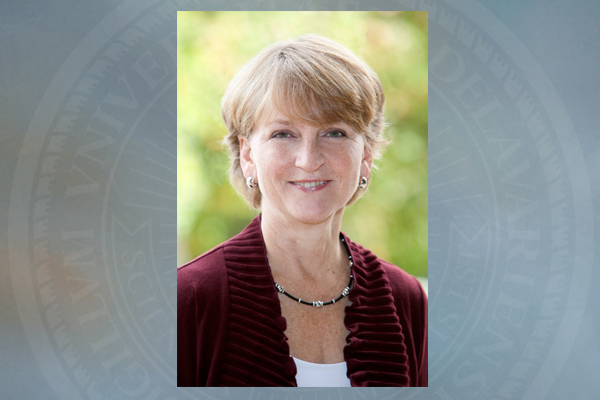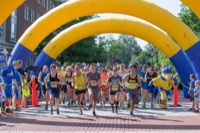
Oct. 30: Sustainability transition
Matson to present two talks on higher ed's role in environmental sustainability
1:35 p.m., Oct. 14, 2014--Pamela Matson, the Chester Naramore Dean of the School of Earth Sciences at Stanford University, will visit the University of Delaware’s Newark campus on Thursday, Oct. 30, for two public presentations.
The first talk, titled “Challenges and Opportunities for a Sustainability Transition: The Role of Universities in Leading Change,” will be featured as part of the Thought Leader Speaker Series at 10 a.m. in the Trabant University Center Theatre.
Events Stories
June 5: Blue Hen 5K
June 6-9: Food and culture series
The talk will be followed at 11 a.m. by an extended question-and-answer period in which the UD community will have the opportunity to discuss new models for research universities with Matson.
The series is sponsored by UD’s “Delaware Will Shine” strategic planning initiative, and Matson’s appearance is co-sponsored by the Delaware Environmental Institute (DENIN).
Engaging university-based research and education in support of a sustainability transition requires fundamental changes in the ways universities do business, according to Matson.
Among the required changes, she says, universities must encourage use-inspired fundamental research; engage faculty and students in interdisciplinary research and problem solving; interact through multiple mechanisms with decision makers; effectively link knowledge with action; and train leaders who appreciate and can work with complexity and uncertainty.
Her seminar will discuss strategies being used by Stanford University and others to become more effective in this pursuit.
Matson will also present the inaugural talk in the DENIN Distinguished Scientist Lecture Series, a new program designed to highlight leading academic thinkers in the environmental sciences and engineering.
This lecture, entitled “Science for a Sustainability Transition: Lessons from the Birthplace of the Green Revolution,” will take place from 4-5 p.m. in the Gore Recital Hall of the Roselle Center for the Arts. A reception will follow the talk at 5 p.m. in the lobby.
In this presentation, Matson will present findings from biophysical and social science research in an intensive wheat-growing region of Mexico to illustrate how new knowledge of the coupled human-environmental system, effectively linked to decision making, can aid in a transition to sustainability.
Both talks are open to the public and will be followed by question-and-answer sessions with the audience.
About Pamela Matson
Matson is an interdisciplinary Earth scientist who works to reconcile the needs of people and the planet. Her research addresses a range of environment and sustainability issues, including sustainability of agricultural systems; vulnerability of particular people and places to climate change; the consequences of tropical deforestation on atmosphere, climate and water systems; and the environmental consequences of global change in the nitrogen and carbon cycles.
With multi-disciplinary teams of researchers, managers and decision makers, she has worked to develop agricultural approaches that reduce environmental impacts while maintaining livelihoods and human wellbeing.
Matson is a MacArthur Fellow and a fellow of the National Academy of Sciences as well as the American Academy of Arts and Science and the American Association for the Advancement of Science.
She is the founding co-chair of the National Academies Roundtable on Science and Technology for Sustainability, a past president of the Ecological Society of America, and serves on the boards of the World Wildlife Fund, Climate Central and ClimateWorks.
She also has served on the science leadership committee for the International Geosphere-Atmosphere Programme, the U.S. National Academies’ Board on Sustainable Development and Committee on America’s Climate Choices, and many other national and international groups.
She is the author of numerous scientific publications and books, including the National Research Council volume titled Our Common Journey: A Transition toward Sustainability and Seeds of Sustainability: Lessons from the Birthplace of the Green Revolution.
At Stanford, she is the Richard and Rhoda Goldman Professor of Environmental Studies and a senior fellow at the Woods Institute for the Environment. She co-leads the Initiative on Environment and Sustainability, an effort that brings together faculty from around the university to help solve critical resource and environment challenges of the century.
She is also the scientific director of the Leopold Leadership Program, a program that provides leadership and communications training to environmental scientists and analysts.
Article by Beth Chajes








